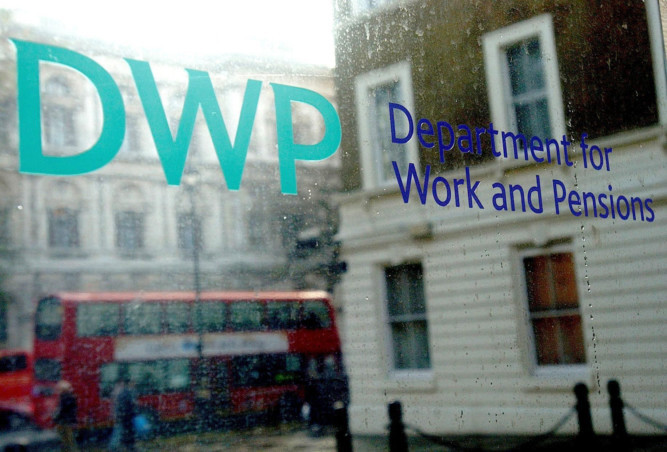
Sanctions, in-work poverty and a complicated system to navigate – the benefits maze.
Sanctions
An area of real concern flagged up by Rob Gowans, of Citizens Advice Scotland, is the issue of “sanctions” the process by which benefits are stopped as a result of claimants not meeting strict criteria in terms of number of jobs applied for or certain appointments being kept, for instance.
People can have their payments stopped at any time and not even realise until they go to withdraw their benefits. At that point they find themselves penniless and bewildered. Communication appears to be at the heart of the problem.
“In the last three years the Government have got really tough,” explains Rob. “Sanctions can last from three weeks up to three years. It’s a real growing problem people are being caught out by strict conditions.
“They maybe have to apply for 42 jobs in a fortnight, they’ve applied for 41 then go onto the welfare computer system and, due to a technical problem, their information hasn’t saved. The DWP will say they haven’t met the conditions and their payment is being stopped for three weeks.
“The thing is that these people often have no other sources of income, so if something goes wrong they are basically left penniless. In some cases, they have to be referred to a food bank as they have absolutely nothing.”
Plain but not simple
One of the most serious issues that has been highlighted is communication between DWP and people who are claiming benefits. While DWP does send letters that explain what people might be entitled to, the problem, according to experts, is how the information is delivered. A letter can be a major obstacle for someone who may have barriers with literacy skills, for example. There are situations where letters coming to claimants are either delayed or are written in complex legalistic terms.
Rob says: “People are coming in saying ‘I’m scunnered by this, I have no idea what this means’. But the worrying thing is what happens to all the people who don’t come to us for help in understanding what the letters mean?”
Time’s against them
To be eligible for Jobseeker’s Allowance, an individual must work less than 16 hours and to be eligible for Working Tax Credit a claimant must work more than 30 hours a week (more than 24 hours a week for couples with children).
If a person works between 16 and 24 hours and those hours fluctuate, it is likely that their income will be very low potentially lower than those in receipt of out-of-work benefits. This is particularly a problem when people are on zero-hours contracts and work different hours every week.
In-work poverty
Rob stresses that the people who find themselves in these kinds of situations are not “scroungers” or people “on the fiddle”. They are ordinary people who need help and a massive proportion of them are in work.
“The majority of people in poverty in Scotland are from households where one person works,” he says. “Low pay, child care costs, and a lack of support from benefits system all contribute to them needing help.
“Where people have lost out most is if they are working but are on a low income. Those with children in particular have struggled and couples can lose out more, in a way, as income is taken as a household.
“In-work poverty is an incredibly common situation.”
What needs to change?
And is there an answer to these problems? Can more be done to help good people who have fallen on bad times?
It’s clear huge improvements could be made in how the benefits system is delivered in terms of administrative and operational issues, improving access to the system and communicating more clearly.
If someone hasn’t claimed for their entire working lives, like Helen and David, it can be utterly baffling trying to navigate a system that is completely alien to them. People with no money to make long phone calls shouldn’t be kept holding on the line to DWP. Mail should not be getting lost.
Welfare experts say Universal Credit, which will roll several benefits into one, has good principles behind it but how it is designed could cause problems, leaving people with rent arrears and facing a long periods between payments. Rob Gowans is clear what else has to change.
“There needs to be an improvement in attitudes to what the welfare system is there for. We need to get away from the notion people are scroungers on the fiddle. It’s there to support those who have fallen on hard times, who have worked and could find themselves out of a job and going hungry or not able to heat their homes. People would prefer to earn money through paid work, not claiming benefits.
“The vast majority find themselves in a situation where they need support, but that support often isn’t available because of problems in the system or because they’ve been badly advised.”
The CAB service provides free, impartial and confidential advice to anyone. Not just on benefits but also debt, housing, employment rights, consumer issues and all other matters. You can find your local CAB in the phone book or use their self-help site adviceguide.org.uk. People in Scotland can also use the phone advice service 0808 800 9060.
Related storiesA checklist – what to do if you get into financial trouble. Over-complicated system means many thousands are missing out. Helen’s Letter: The anger of a nation.

Enjoy the convenience of having The Sunday Post delivered as a digital ePaper straight to your smartphone, tablet or computer.
Subscribe for only £5.49 a month and enjoy all the benefits of the printed paper as a digital replica.
Subscribe